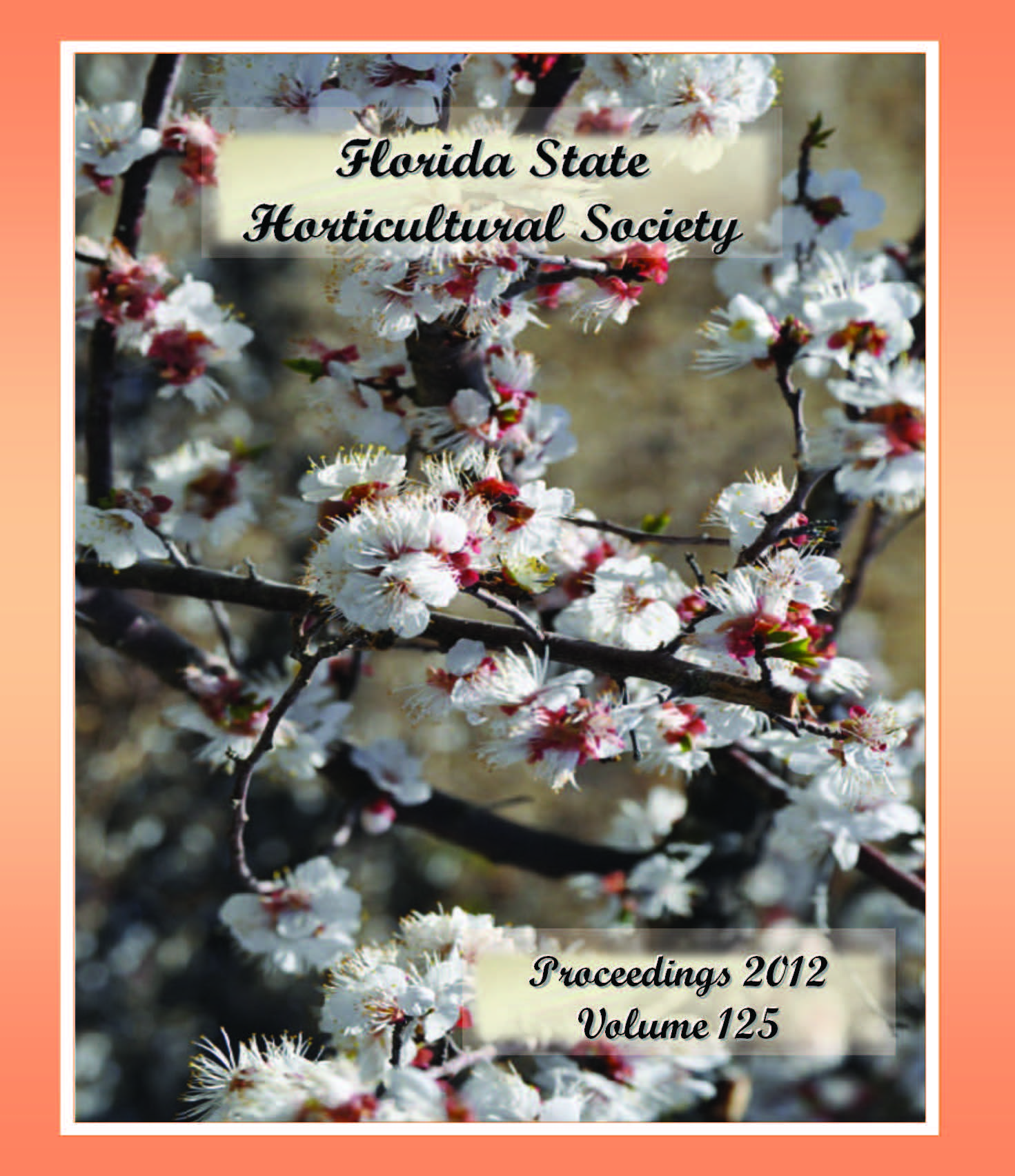Publicado 2012-12-01
Palabras clave
- Diphorina citri,
- Citrus sinensis,
- Murraya paniculata,
- entomopathogenic fungi
Resumen
The entomopathogenic fungus Isaria fumosorosea(commercially available as PFR-97) and various emulsifiable oils were tested against established infestations of Asian citrus psyllid (Diphorina citri) in potted orange jessamine (Murraya paniculata L.) and Benton citrange (Citrus sinensis L.) in greenhouse cages. Fungal treatments at label rates reduced psyllid populations by approximately 50% over 3 weeks. The combination of PFR-97 with emulsifiable oils did not enhance psyllid mortality compared with either agent alone. Imidacloprid applied as a soil drench killed >99% of psyllids within 3 weeks. Subsequent tests conducted under very humid conditions were hampered by natural dissemination of I. fumosorosea, suggesting that this fungus can be spread by air movement or other factors. In addition, a naturally occurring Cladosporium spp. rapidly colonized psyllid cadavers and leaf surfaces, but was not pathogenic in laboratory tests. Our studies confirmed the potential of I. fumosorosea for control of D. citri. Although I. fumosorosea or some insecticidal oils may be less effective compared with systemic insecticides in terms of direct toxicity, PFR-97 and some oils are expected to have lower impacts on beneficial species and hence may be suitable for inclusion in integrated management strategies for this pest.

